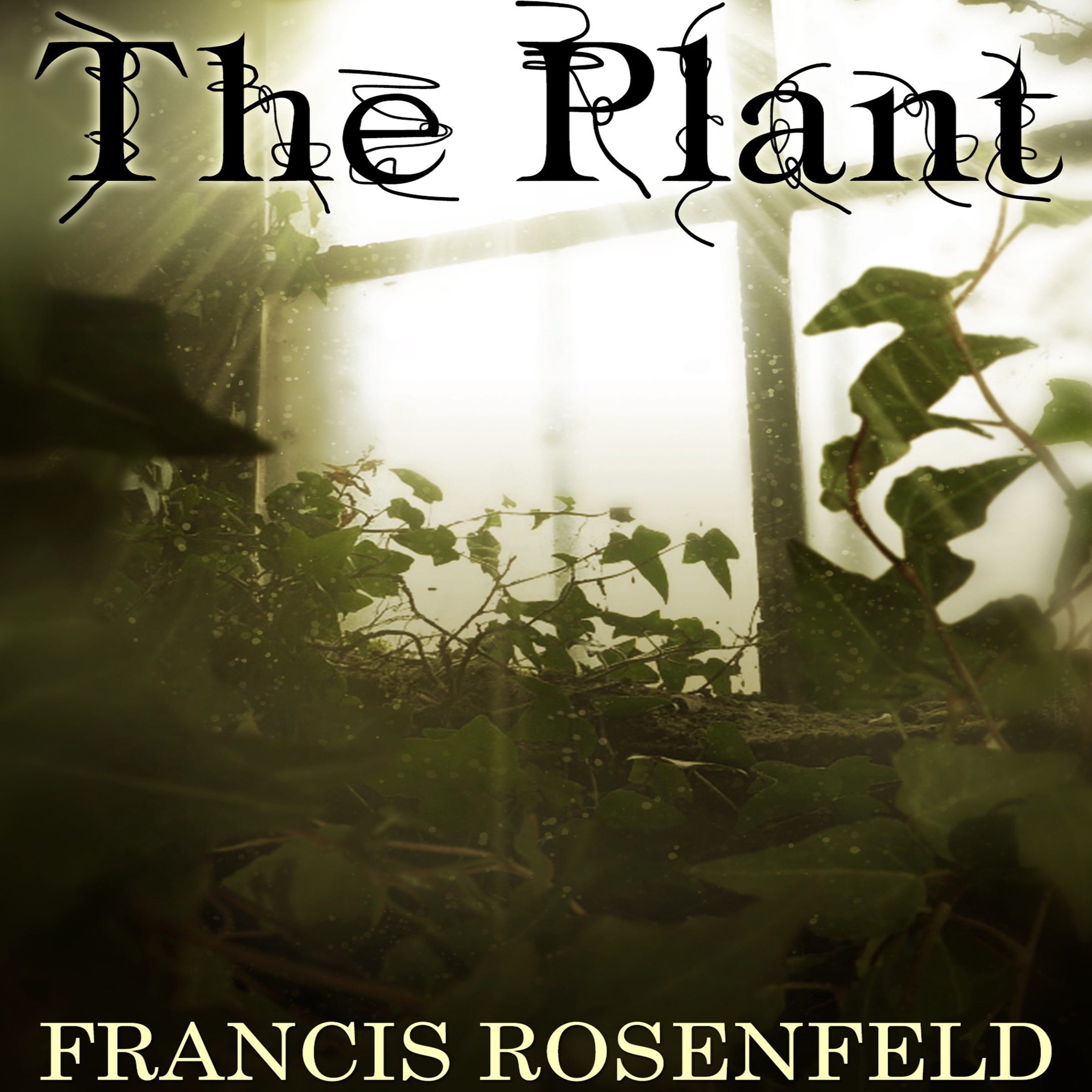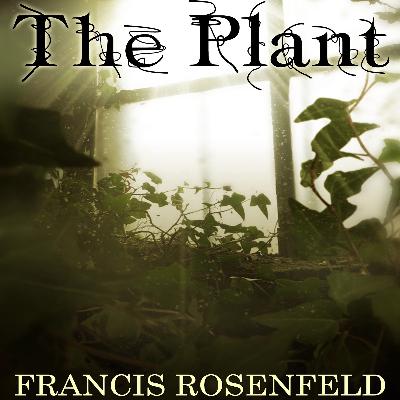Chapter 10 - Creative Truth
Description
“I don't understand this fantasy project of yours, what exactly is that interface you're talking about going to do?” Jack frowned, trying to make sense of his friend's idea.
“Think about it, what made the plant grow in the steam pipes in the first place?” Richard asked, and when he met Jack's befuddled gaze he answered his own question. “It needs the high temperature and the pressure, but what if it's not in any range, but the precise one the distribution system functions at?”
He caught Jack's skeptical look and continued anyway. “Of course there will be no way of really knowing that until our new cutting takes root.”
“If our new cutting takes root,” Jack corrected him. “It will be a true miracle if that plant sprouts roots, after two whole months.”
“When that cutting roots,” Richard said, as if he hadn't heard him, “given the different conditions, it will probably develop a different response to them.” Jack tried very hard to hide a yawn.
“This is important, Jack!” his friend protested.
“Sorry, man. What do I care if the stupid plant changes its response? It's a plant.”
“That has evolved enough to turn all the machines back on, because it liked them that way,” Richard pointed out.
“So what?” Jack retorted.
“I was thinking of synchronizing the plant and the machine, you know?” he looked at Jack, whose expression said he didn't. “Finding a way to know how much energy the plant feeds back into the system and what conditions it likes best.”
“I don't understand a thing you're saying, dude. Whatever! What do you want me to do?” Jack interrupted him.
“I need you to find a reason to get me out of the house every day for three hours,” Richard replied.
“I'm not a miracle worker, Richard!” Jack protested.
“Don't be modest, Jack! If anybody can cook up a story that would stand on its end, it's you!” Richard encouraged him. Jack shook his head, flattered but still uncertain.
“I'll think of something,” he eventually agreed. “I'm not promising anything, mind you!” he pointed out to Richard. “Don't get your hopes up,” he warned.
The story of how Richard built a synthetic biology interface between the plant and the machine paled in comparison with the tale his friend concocted for him to supplant it, tale that involved a never before heard of second cousin of his from out of town, the latter's life-long dream to participate in a science competition for school age children that didn't exist, the challenge of a theoretical engine that ran on bio-fuel, ample library time for writing down the research papers, and the justification for building a gizmo whose function nobody could possibly understand.
Richard was thrilled, and had to admit that his friend had gone above and beyond in his ability to reshape people's perceptions in order to accommodate their current needs. Not only did Jack give him the three hours he requested, but he also produced an explanation for the device, which was kind of too large to hide, a pre-approved list of parts Richard couldn't do without and a reasonable justification for parts he might need in the future that he might have left out.
The construction of the device advanced slowly, and the more it progressed, the less the gizmo made sense to anybody who saw it. It looked like a miniature robot and behaved like a plant, moving hot sap through its transparent tubes, with a cathodic tube at one end and what could only be described as roots at the other.
Richard's parents and siblings saw the weird device, and even though it was a lot more peculiar than the boy's usual fare, they didn't think twice about it. Stacey even joked that it looked like a plant that blooms television sets.
“How are we going to transport this to the factory?” Jack exclaimed the first time he saw the semi-finished device. Richard gestured impatiently, to convey that was the least of his concerns.
“This is just a prototype, the final object is going to be a lot smaller,” he commented.
“Thank goodness for that! It would be kind of difficult to explain bringing beautiful here to the factory floor,” Jack said, relieved.
Meanwhile, somewhere in the arid outskirts of the city, from a hot, somewhat smelly swamp, a little sprout emerged, a little hesitant at first, but then, feeling established, it unfurled its leaves and tendrils and asserted exclusive rights over its sweltering home and weaved itself through the rusty pipes and scraps of metal that Richard and Jack had brought to feed it.
It looked so different from the plant at the factory, due to the differences in water solutes, temperature and pressure, that the team who had volunteered their efforts to nip in the bud any expansion of the plant beyond the factory floor didn't recognize it at first, especially since many of them, who weren't working there, haven't actually seen the original. It took the complaint of a weekend sight-seer, who claimed a hot plant pinched her when she touched it, to make them give the eager sprout a second look.
When the identity of the plant was confirmed, a new wave of concerns and suppositions overtook the city. Some feared the plant had emerged spontaneously in the remote hot spring, and would expand until it filled their entire universe with hot leaves. Others pointed out that it couldn't survive outside of its compatible environment, which was quite limited in size. Most agreed that somebody must have planted it, and offered their suspicions about who that might be.
Evidently, Richard and Jack's names never entered their minds, first of all because everybody knew, by the grace of Carol's maternal boasting, that the boys have been spending all of their time working to help Jack's cousin with his science fair project, and besides, how would they have access to the plant when they had never stepped foot on the factory floor?
The fact that the plant had sprouted in the middle of winter was even more worrisome, and people had to wonder what was going to happen when hot weather came along and sped-up its growth even more.
In the tumult of opinion and fact finding the team of experts was convened again, to offer advice on managing the interaction, rather than eliminating it. Some of the town folk refused to show up to the town hall meetings this time, objecting that giving up their time too on top of a revolting fee for no results at all was simply insulting their intelligence.
Jack and Richard, on the other hand, didn't miss a single minute of them, eager to collect as much detail about the current state of affairs as possible.
“We are expecting the plant to bloom soon, probably in the next couple of weeks or so,” one of the experts was explaining as the two boys sneaked in to their now regular seats up in the balcony.
“And why does that matter to us at all?” somebody protested.
“Usually, when plants prepare for the production offspring, they intensify their metabolic processes,” the expert continued.
“Which means it is going to generate even more energy?” the person in the audience said.
“Most likely,” the expert agreed. “In fact we anticipate a significant increase in output, probably in the neighborhood of forty percent.”
“Great! We'll have the stupid plant run our lives even more than it already is!” somebody commented bitterly, stirring a little cloud of discontent above the audience.
“We thought this would be good news!” the expert commented, surprised.
“Did anybody give any thought to the fact that when those beautiful and most likely poisonous blossoms fade, they're going to rain hot metal on top of our heads?” a lady from the back said. She had had some experience with growing the plant's normal relative, the Carolina Jessamine, and knew what to expect. “They're a lot of blossoms, too,” she added.
“We should probably stretch some nets overhead to catch the petals as they fall,” the expert replies. “Now that I think of it, this would be a great opportunity to claim the metal inside them with the least amount of effort.”
“What I think is that we should install a couple of trapezes too, to go with that,” a sarcastic voice from the back replied. “You know, for the full circus experience!”
“There is no need for snarky remarks,” the expert countered, “this may provide the factory with a great opportunity to expand its scope.”
“We're a power plant, not a foundry!” a person protested.
“Wait a minute! Why not expand? This would be great!” somebody else contradicted him.
“That's seasonal work, it's not worth the investment in the equipment,” the first person retorted.
“What if we could entice the plant to produce year round?” a second expert suggested.
“You can't entice the plant to get the heck out of there!” a gruff voice replied. “How are you going to 'entice' it into continuous bloom?”
“Actually, it's still a plant, there are all sorts of ways to trick it into bloom: special nutrients, artificial seasonal changes, grafting, there are ways,” the second expert started offering solutions, happy to present his current




















